Florida Glass & Glazing Contractor Insurance
8:30am - 5:00pm Mon-Fri
Will Reply in 15min*
Top Recommended Business Insurance Policies

Index
The Unique Insurance Needs of Glass & Glazing Contractors
Current Market Trends Impacting Insurance Costs in Florida
Key Types of Insurance Coverage for Florida Glazing Contractors
Factors Influencing Insurance Costs for Florida Contractors
How Litigation Trends Affect Insurance for Glazing Contractors
Insurance Rate Changes and Market Stability in 2024
Cost Comparison Table: Common Coverage Types for Florida Glass & Glazing Contractors
Risk Management Tips to Lower Insurance Costs
What Florida Glazing Contractors Should Know Before Purchasing Insurance
Contact Us
Phone
Location
Florida’s glass and glazing contractors operate in a dynamic environment where specialized risks meet a complex insurance market. With the industry projected to reach $1.4 billion by 2025, encompassing nearly 2,800 establishments and over 7,000 employees, understanding insurance coverage and cost factors is critical for contractors seeking to protect their business and workforce effectively. This article explores the insurance landscape tailored to Florida’s glass and glazing sector, highlighting key coverage types, cost drivers, and recent market trends shaping contractor decisions today. For a detailed industry outlook, see the
IBISWorld report on Florida’s glass and glazing contractors.
The Unique Insurance Needs of Glass & Glazing Contractors
Glass and glazing contractors face a distinct set of risks that influence their insurance requirements. Handling fragile materials, working at heights, and operating specialized equipment increase the likelihood of property damage, bodily injury, and equipment loss. These risks demand comprehensive coverage beyond standard business insurance.
Liability coverage is fundamental, protecting contractors from third-party claims related to accidents or property damage during installation or repair work. Additionally, equipment insurance safeguards costly tools and machinery essential for glazing projects. Workers’ compensation is another critical component, given the physical nature of the work and the potential for on-site injuries.
Specialized glazing insurance packages often bundle these coverages, providing tailored protection that addresses the nuances of glass installation risks. This approach helps contractors manage exposures without gaps or unnecessary overlaps in coverage. For more on how glazing insurance protects contractors, visit Glazing Insurance’s resource page.
Moreover, the nature of glass work often involves intricate designs and custom installations, which can lead to unique liability concerns. For instance, if a custom glass feature fails due to improper installation, the contractor could face significant financial repercussions. Therefore, having professional indemnity insurance can be invaluable, as it covers legal costs and damages associated with claims of negligence or inadequate work. This is particularly important in high-stakes projects, such as commercial buildings or public spaces, where the implications of failure can be severe.
Additionally, as the industry evolves with advancements in technology and materials, contractors must stay informed about new risks and regulatory requirements. For example, the introduction of energy-efficient glazing options may require contractors to adapt their techniques and knowledge base. This continuous learning and adaptation can also impact insurance needs, as contractors may need to seek coverage that reflects their evolving skill set and the specific risks associated with new materials. As such, regular consultations with insurance professionals can help ensure that contractors maintain adequate protection as their business grows and changes.
Current Market Trends Impacting Insurance Costs in Florida
Florida’s insurance market has experienced significant shifts recently, directly affecting coverage costs for glass and glazing contractors. After years of volatility, the property insurance sector reported a $207 million underwriting profit in 2024, signaling a notable turnaround. This improvement is partly due to more insurers entering the market, which has helped stabilize pricing and availability for contractors and homeowners alike. The influx of new players has not only increased competition but has also led to innovative insurance products tailored to meet the specific needs of Florida's unique environment, which is often challenged by hurricanes and flooding.
Despite this positive development, Florida’s property insurance litigation costs remain a major concern. Litigation expenses have surged by over 210% since 2013, with 85,007 cases recorded in 2019. These legal costs consume approximately 17% of all property premiums in Florida, nearly triple the national average. Such high litigation rates contribute to increased premiums and stricter underwriting standards for contractors’ insurance policies. The rise in litigation can be attributed to various factors, including aggressive marketing by attorneys and a growing number of policyholders seeking legal recourse for denied claims, which complicates the landscape for insurers and contractors alike.
However, there are signs of improved claims management efficiency. Florida’s defense and cost-containment expenses ratio dropped from 8.4% in 2022 to 3.1% in 2024, reflecting better handling of claims and potentially easing some upward pressure on insurance costs. Insurers are increasingly investing in technology to streamline the claims process, utilizing data analytics and artificial intelligence to assess claims more accurately and quickly. This technological advancement not only enhances customer satisfaction but also helps in reducing fraudulent claims, which have historically plagued the industry. For a deeper dive into Florida’s evolving insurance market, see the analysis by Active Property Care.
Moreover, the regulatory environment is also shifting, with lawmakers actively discussing reforms aimed at curbing excessive litigation and improving overall market stability. Proposed measures include caps on attorney fees and stricter guidelines for filing claims, which could significantly alter the current landscape. These potential changes are being closely monitored by industry stakeholders, as they could lead to a more balanced approach to risk management and insurance pricing. As Florida continues to adapt to these market dynamics, both contractors and homeowners will need to stay informed about the evolving regulations and their implications for coverage and costs.

Key Types of Insurance Coverage for Florida Glazing Contractors
General Liability Insurance
General liability insurance is the cornerstone of protection for glass and glazing contractors. It covers bodily injury, property damage, and legal defense costs arising from accidents on the job. Given the fragile nature of glass and the potential hazards of installation, this coverage is essential to manage risks associated with client property and third-party injuries. Additionally, it can protect contractors from claims related to advertising injuries, such as defamation or copyright infringement, which can arise in the competitive construction industry.
Workers’ Compensation Insurance
Florida law requires most employers to carry workers’ compensation insurance. For glazing contractors, this coverage is vital due to the physical demands and injury risks inherent in handling glass and working at heights. It covers medical expenses and lost wages for employees injured on the job, shielding contractors from costly lawsuits. Moreover, having this insurance can foster a safer work environment, as it encourages employers to implement safety measures and training programs to prevent workplace accidents, ultimately benefiting both the workers and the business.
Equipment and Tools Insurance
Specialized glazing equipment can be expensive to replace or repair. Equipment insurance protects contractors against loss, theft, or damage to tools and machinery critical to their operations. This coverage ensures minimal disruption to business continuity in case of unexpected incidents. Furthermore, it can also cover rental costs for replacement equipment, allowing contractors to maintain productivity while their tools are being repaired or replaced. This aspect is particularly crucial in a competitive market where time is often of the essence.
Commercial Auto Insurance
Many glazing contractors rely on vehicles to transport materials and equipment. Commercial auto insurance covers vehicles used for business purposes, protecting against accidents, theft, or damage. This coverage is particularly important given Florida’s busy roadways and the need to move fragile glass safely. In addition, this insurance can also provide coverage for liability in case of an accident involving a company vehicle, ensuring that contractors are protected from financial repercussions stemming from vehicular incidents while on the job.
Professional Liability Insurance
Also known as errors and omissions insurance, professional liability protects contractors against claims of negligence, errors, or omissions in their work. For glazing contractors, this can cover issues such as faulty installation leading to property damage or safety hazards. It’s particularly relevant in a field where precision is paramount, as even minor mistakes can result in significant financial losses or legal issues. By investing in this coverage, contractors can demonstrate their commitment to quality and professionalism, potentially enhancing their reputation in the industry.
Specialized Glazing Insurance Packages
Some insurers offer tailored glazing insurance packages that combine general liability, equipment, workers’ compensation, and other relevant coverages into one policy. These packages simplify management and often provide cost efficiencies. For more on these specialized options, explore resources from
Glazing Insurance. Additionally, these packages may include coverage for specific risks associated with glazing work, such as environmental liabilities or coverage for specialized glass types, further enhancing the protection for contractors. By bundling their insurance needs, glazing contractors can also benefit from streamlined claims processes and dedicated support from their insurers, making it easier to navigate the complexities of the insurance landscape.
Factors Influencing Insurance Costs for Florida Contractors
Insurance premiums for glass and glazing contractors in Florida depend on several factors unique to the state and industry. The high litigation environment and recent market fluctuations play a significant role in pricing.
Contract size and revenue impact rates, as larger projects typically carry higher risks. The number of employees and payroll size also influence workers’ compensation costs. Additionally, the contractor’s claims history and safety record affect underwriting decisions and premium levels.
Location within Florida matters too. Coastal areas prone to hurricanes and storms may face higher premiums due to increased risk of property damage and business interruption. Contractors operating in such zones should consider comprehensive coverage that addresses natural disaster exposures.

How Litigation Trends Affect Insurance for Glazing Contractors
Florida’s property insurance litigation costs have grown dramatically, with a 210% increase since 2013. This surge has led to insurers factoring higher legal expenses into premium calculations. For glazing contractors, this means their liability and property insurance costs may reflect the broader market’s legal challenges.
High litigation rates contribute to more cautious underwriting and sometimes stricter policy terms. Contractors may face increased scrutiny on safety protocols and claims history. However, the recent decline in defense and cost-containment expenses suggests insurers are improving claims handling, which could moderate future cost increases.
Understanding these legal dynamics helps contractors anticipate changes in their insurance costs and encourages proactive risk management to minimize claims exposure.
Insurance Rate Changes and Market Stability in 2024
The Florida Office of Insurance Regulation reported that in 2024, nine homeowners’ insurance carriers filed for rate reductions while ten requested zero-rate increases. This trend signals a more balanced market, which can positively influence commercial insurance pricing for contractors as well.
Insurance Commissioner Mike Yaworsky noted that Florida’s insurance market is stabilizing, with more companies entering and competition increasing. This environment can lead to better coverage options and more competitive premiums for glazing contractors who maintain strong risk profiles.
Contractors should stay informed about market shifts and work closely with insurance brokers to secure the best coverage at reasonable costs. For insights on Florida’s insurance market stabilization, see
Covered’s state guide.
Cost Comparison Table: Common Coverage Types for Florida Glass & Glazing Contractors
| Coverage Type | Typical Coverage Limits | Primary Protection | Estimated Cost Range (Annual) |
|---|---|---|---|
| General Liability | $1 million per occurrence / $2 million aggregate | Third-party injury and property damage | $600 - $1,500 |
| Workers’ Compensation | Statutory (varies by payroll) | Employee injury and medical costs | $3,000 - $10,000 |
| Equipment Insurance | Based on equipment value | Tools and machinery loss or damage | $500 - $2,000 |
| Commercial Auto | Varies by vehicle | Business vehicle accidents and damage | $1,200 - $3,000 |
| Professional Liability | $1 million per claim | Errors and omissions | $800 - $2,000 |
Risk Management Tips to Lower Insurance Costs
Effective risk management can help glass and glazing contractors reduce insurance premiums and improve coverage terms. Implementing safety training programs focused on handling glass and working at heights reduces workplace injuries and claims.
Maintaining equipment properly and securing job sites minimizes the risk of theft or damage. Keeping detailed records of safety protocols and incident reports demonstrates a commitment to risk reduction, which insurers value.
Working with an experienced insurance broker who understands Florida’s glazing industry can help tailor policies to actual risks, avoiding over-insurance and identifying cost-saving opportunities.
What Florida Glazing Contractors Should Know Before Purchasing Insurance
Before selecting insurance policies, contractors should assess their specific business operations, project types, and risk exposures. Understanding the scope of coverage, exclusions, and claim processes is essential to avoid surprises during a loss.
Contractors should also verify that policies comply with Florida’s legal requirements, particularly for workers’ compensation. Reviewing insurance carriers’ financial strength and reputation ensures reliable claim support when needed.
Since Florida’s insurance market is evolving, staying informed about regulatory changes and market conditions helps contractors adapt coverage and budgeting accordingly.
Frequently Asked Questions
Q: Is workers’ compensation insurance mandatory for glazing contractors in Florida?
A: Yes. Most employers in Florida are required by law to carry workers’ compensation insurance to cover employee injuries on the job.
Q: How does high litigation in Florida affect my insurance premiums?
A: Increased litigation drives up legal defense costs for insurers, which can lead to higher premiums and stricter underwriting for contractors’ liability coverage.
Q: Can I bundle different coverages into one policy?
A: Many insurers offer specialized glazing insurance packages that combine general liability, equipment, and workers’ compensation coverage for convenience and potential cost savings.
Q: What factors most influence my insurance costs?
A: Key factors include business size, payroll, claims history, location, and the types of projects you undertake.
Q: How can I reduce my insurance premiums?
A: Implementing safety programs, maintaining equipment, and working with knowledgeable brokers can help lower risks and premiums.
Q: Does commercial auto insurance cover personal vehicles used for work?
A: No. Commercial auto insurance is specifically for vehicles used for business purposes, separate from personal auto policies.
Q: Are there any recent positive changes in Florida’s insurance market?
A: Yes. The market is stabilizing with more insurers entering, and some carriers have filed for rate reductions or zero-rate increases in 2024, which may benefit contractors.
Florida’s glass and glazing contractors face a challenging but improving insurance landscape. By understanding their unique risks, market conditions, and coverage options, contractors can secure protection that supports their business growth and resilience.








